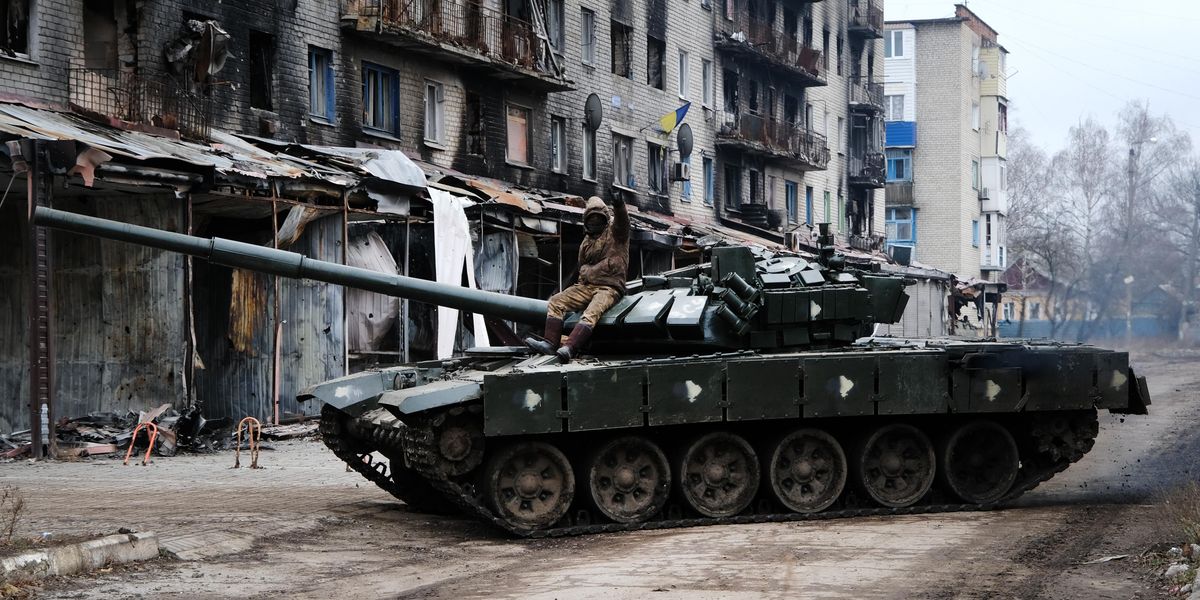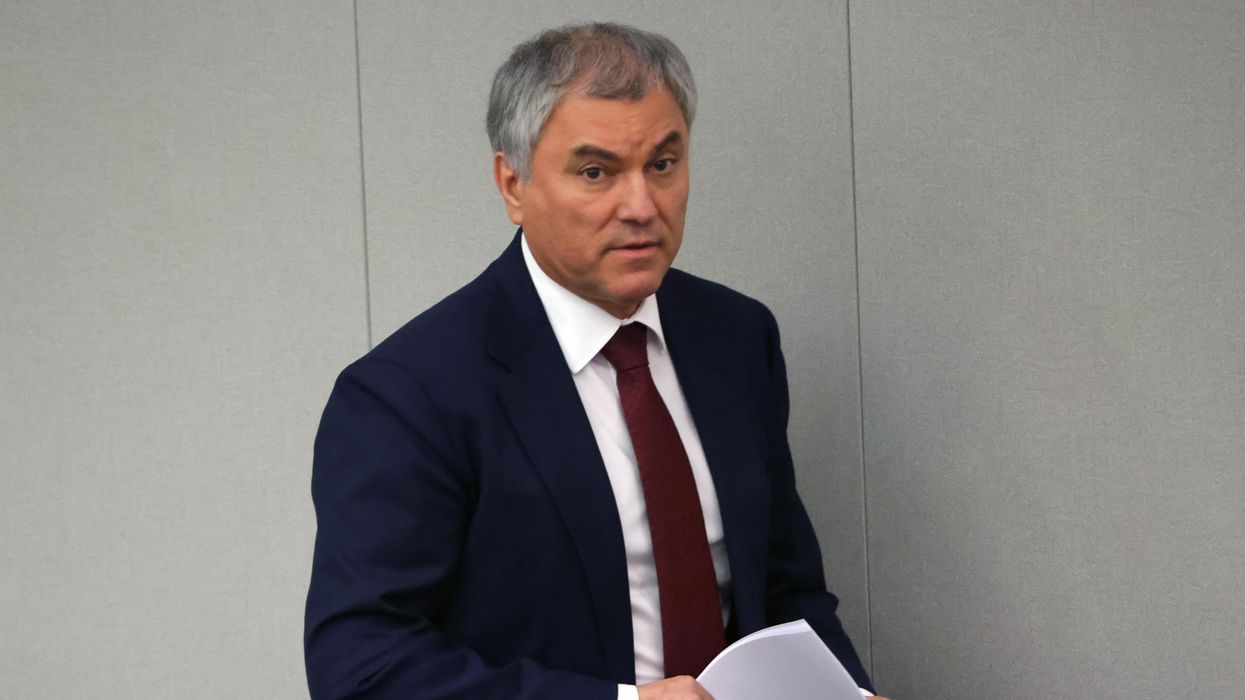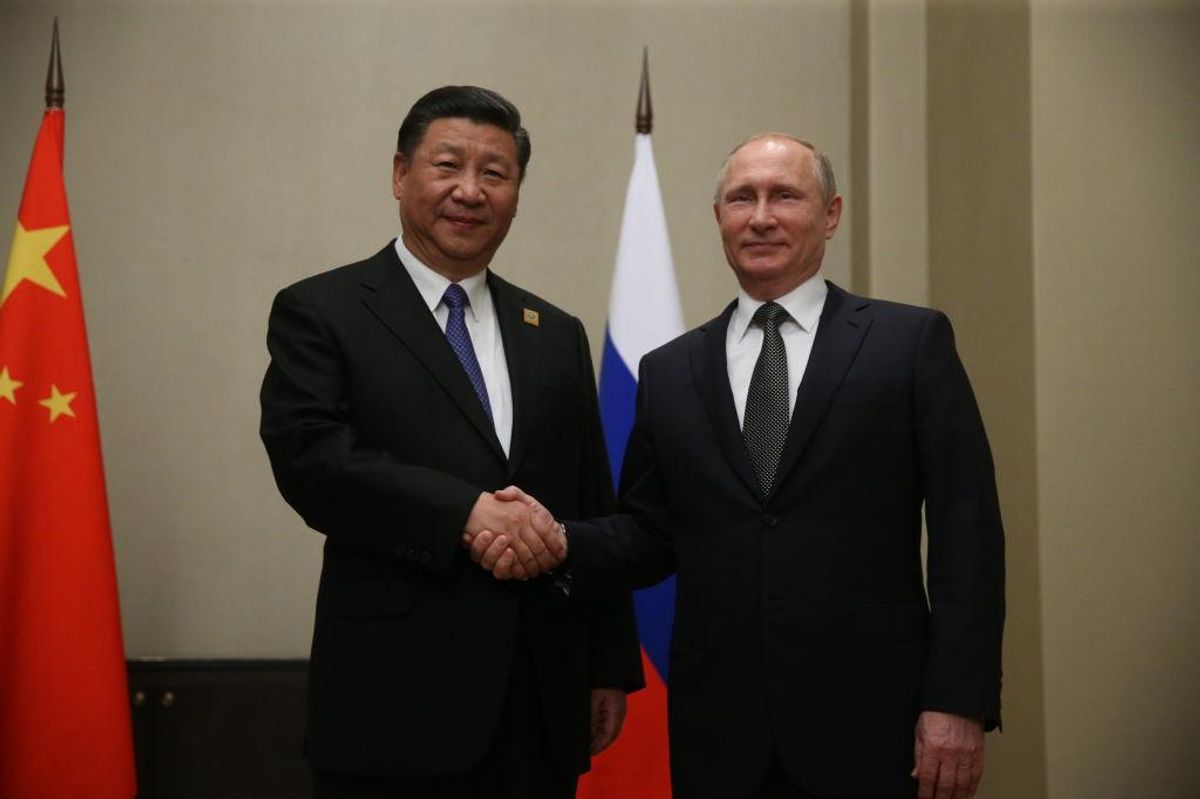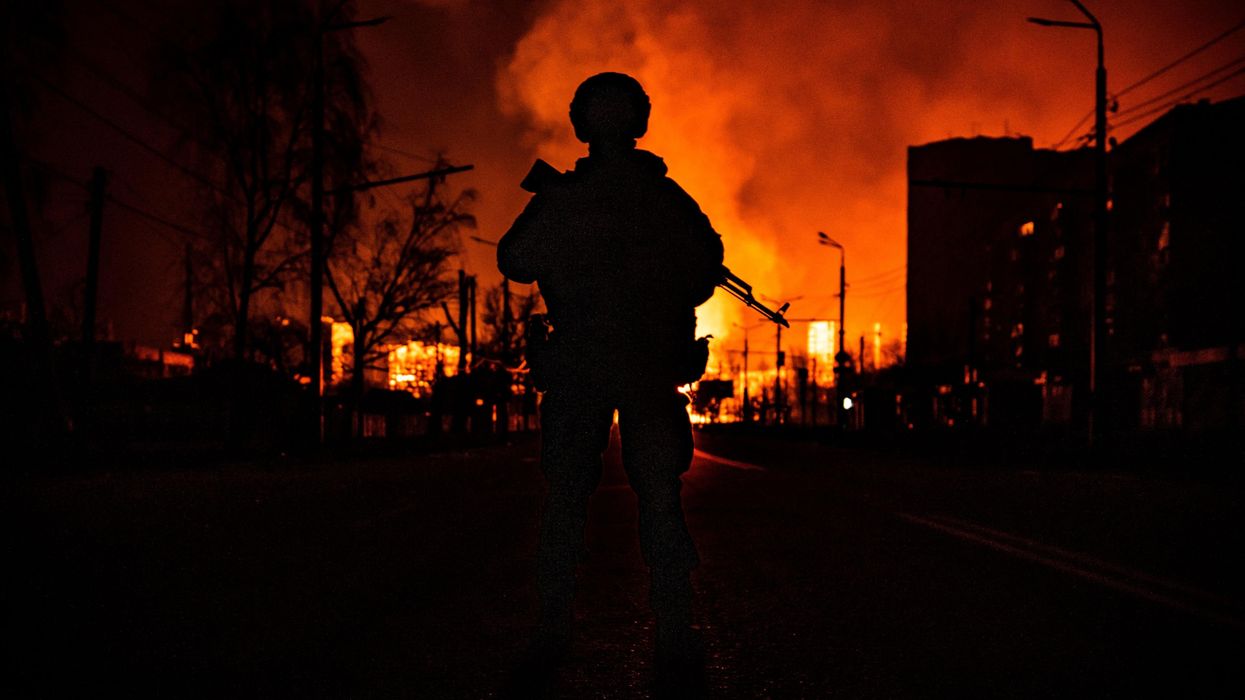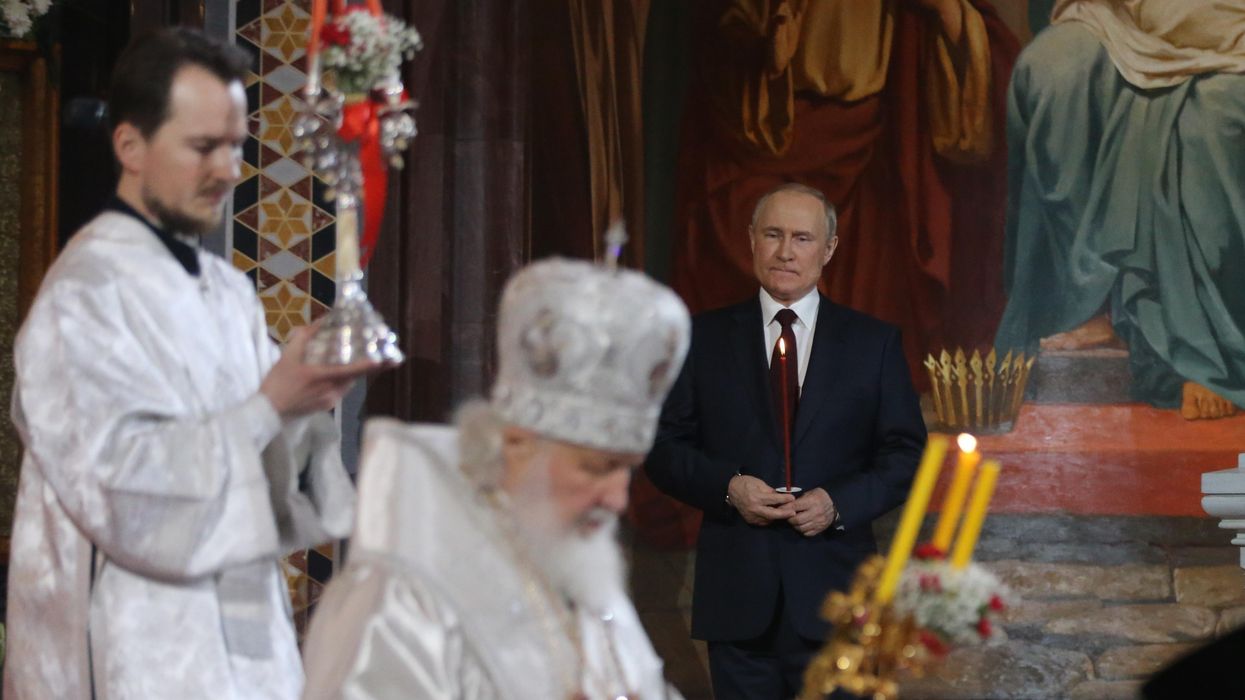CounterSpin221230.mp3
Janine Jackson: Welcome to the best of CounterSpin for 2022. I’m Janine Jackson.
All year long, CounterSpin brings you a look, as we say, behind the headlines of the mainstream news. We hope both to shine some light on aspects of news events, perspectives of those outside of power, relevant but omitted history, important things that might be pushed to the side or off the page entirely in elite media reporting.
But it’s also to remind us to be mindful of the practices and policies of corporate news media that just make it an unlikely arena for the inclusive, vital debate on issues that matter that we need.
CounterSpin is thankful to all of the activists, researchers, reporters and advocates who appear on the show. They help us see the world more clearly, as well as the role that we can play in changing it.
This is just a small selection of some of them. You’re listening to the best of CounterSpin for 2022, brought to you by the media watch group FAIR.
Janine Jackson: “Supply Chain Mayhem Will Likely Muck Up 2022”—that New York Times headline got us off to a start of a year of actual hardship, and a lot of obfuscation about that hardship’s sources. The pandemic threw into relief many concerns that it did not create—and offered an opportunity to address those concerns in a serious and not a stopgap way. Rakeen Mabud is chief economist and managing director of policy and research at Groundwork Collaborative. We talked with her early in the year.

Rakeen Mabud: “On these corporate earnings calls, what we hear CEOs and CFOs saying, in sector after sector, in company after company, is we can use the cover of inflation to jack up prices on consumers, and rake in the profits for ourselves, and pay out some good dividends for our shareholders.”
Rakeen Mabud: So we’ve essentially spent 50 years handing our supply chain over to mega corporations. These companies have built a system that works for them, right, it works for padding their own profits, jacking up their profits, all spurred on by Wall Street, who really demanded short-term profit increases over all else.
And so when you think about what a supply chain is for, usually most people would think, oh, it’s here to deliver goods and services. Well, that’s actually not what our supply chain was built to do. Our supply chain was built to really maximize what companies could get out of this, and the dividends that they can pay off to shareholders.
And what that means is that they’ve essentially built this system that has no redundancy. It has no sort of flexibility for changes in an economy, such as a pandemic, or even something like a climate shock, right, which we’re unfortunately likely to see more of over the coming years and decades.
And so there is what we call a just-in-time supply system, right? This is a supply system that is expected to deliver exactly the number of goods that are needed at exactly the moment that they’re needed.
But with something like a pandemic, all of those predictions about what goods will be needed when go out the window. And that’s when you end up with supply shortages, that’s when you end up with bottlenecks.
The consolidation piece of this is also really important. We have three ocean shipping alliances that carry 80% of the world’s cargo. So there, if one of them goes down, you can see how that massively disrupt our global supply chain, but you can also see how that might jack up prices.
And my team and I have combed through hundreds and hundreds and hundreds of corporate earning calls. And you really don’t have to take my word for it. There’s obviously a big, deep story here. But on these corporate earnings calls, what we hear CEOs and CFOs saying, in sector after sector, in company after company, is we can use the cover of inflation to jack up prices on consumers, and rake in the profits for ourselves, and pay out some good dividends for our shareholders.
Embedded within that is also, let’s cut back on pay for workers. You saw Kroger do this, right? Kroger cut back on hazard pay, jacked up its prices, and then issued a bunch of stock buybacks.
And so the issues facing workers and consumers, as well as these small businesses who aren’t able to negotiate better prices for the inputs that they’re selling in their stores, and are being hit by pandemic profiteering higher up the supply chain. These are all part of the same system, and it’s all rooted in what is essentially, in short, corporate greed.
Janine Jackson: The ease with which US media step into saber-rattling mode, the confidence as they soberly suggest people other than themselves might just need to be sent off to a violent death, in service of something they can only describe with vague platitudes, should be disturbing. Bryce Greene’s piece, “What You Should Really Know About Ukraine,” got more than 3,000 shares on FAIR.org, and that’s because people needed to hear a different version of that story than what they were hearing.

Bryce Green: “Washington decided to expand anyway. And they were the only superpower left, there was no one to challenge them, so they decided they could do it. They ignored Russian objections and continued to enlarge the military alliance, one country at a time.”
Bryce Greene: So this whole story of NATO expansion and economic expansion, it begins right after the Cold War and the dissolution of the Soviet Union. The US and Russia made a deal that NATO, the Cold War alliance, would not expand east past a reunified Germany. No reason to escalate tensions unnecessarily.
But, unfortunately, Washington decided to expand anyway. And they were the only superpower left, there was no one to challenge them, so they decided they could do it. They ignored Russian objections and continued to enlarge the military alliance, one country at a time.
And even at the time, Cold Warriors, like the famed diplomat George Kennan, warned that this was a recipe for disaster. It would make Russia feel trapped and surrounded, and when major nuclear powers feel trapped and surrounded, it doesn’t really make for a peaceful world. But as we all know, Washington isn’t in the interest of peace, and they did it anyway.
In 2004, the US poured millions of dollars into the anti-Russian opposition in Ukraine. They funded media and NGOs supporting opposition candidates. And they did this using organizations like the NED, the National Endowment for Democracy, and USAID. These organizations are broadly understood to serve regime-change interests in the name of “democracy.”
Now, in 2004, it didn’t work exactly, but Ukraine began to start making closer ties to the EU and US. And that process continued up to 2014.
Shortly before the overthrow, the Ukrainian government was negotiating closer integration into the EU, and closer integration with the Western economic bloc. And they were being offered loans by the International Monetary Fund, the major world lending agency that represents private interests around the Western world.
So to get those loans, they had to do all sorts of things to their economy, commonly known as “structural adjustment.” This included cutting public sector wages, shrinking the health and education sectors, privatizing the economy and cutting gas subsidies for the people.
And at the time, Russia was offering a plan for economic integration to Ukraine that didn’t contain any of these strings. So when President Viktor Yanukovych chose Russia, well, that set off a wave of protests that were supported and partially funded by the United States. In fact, John McCain and Obama administration officials even flew to the Maidan Square to help support the protesters who wanted to oust the president and change the government.
And what’s worse is that right after the protests started, there was a leaked phone call between Victoria Nuland, one of Obama’s State Department advisors, and the US ambassador to Ukraine, in which they were describing how they wanted to set up a new government. They were picking and choosing who would be in the government, who would be out.
Well, a few weeks after that, the Ukrainian government was overthrown. And the guy who they designated as our guy, Arseniy Yatsenyuk, became the prime minister.
So clearly, clearly, there’s a lot of US involvement in how the Ukrainian government has shifted over the last decade. After 2014, the Ukrainians opted to accept the IMF loans, they opted to further integrate with the EU economically. And Russia is watching all of this happen.
And so immediately after the overthrow, the eastern regions in Ukraine, who were ethnically closer to Russians, and they speak Russian and they favor closer ties to Russia, they revolted. They started an uprising to gain more autonomy, and possibly to separate from the Ukraine entirely.
The Ukrainian government cracked down hard. And that only fueled the rebellion, and so Russia sent in volunteers and soldiers to help back these rebels. Now, of course, Russia denies it, but we all know they are.
And so since 2014, that sort of civil war has been at a stalemate, and every so often there would be a military exercise on the border by one side or another. But really nothing much has changed. And so this current escalation started because of the US involvement in the Ukrainian government’s politics.
Janine Jackson: The Peace Corps issued a press release warning that African Americans looking to support Ukrainians should accept that they might face racism—because, sooprise, sooprise, of how we’re portrayed in US media.
We talked about the basic story the world and the US hears about Black people, thanks to journalism—with Layla A. Jones, reporter at the Philadelphia Inquirer. She’s part of the papers’ “A More Perfect Union” project, online at Inquirer.com.

Layla A. Jones: “This portrayal of urban environments definitely did fuel fear among viewers…. The way that TV news portrayed Black and urban communities really did affect—it does affect—people’s public opinions of Black people and of our communities.”
Layla A. Jones: “Eyewitness News,” and then “Action News,” which came afterwards, went to more than 200 US cities, but also went international, that format. But, yeah, when it was coming up in the late ’60s, and then “Action News” in the early ’70s, at the same time, there was this suburbanization and white flight happening in urban centers, and for a variety of reasons. We were coming off of the civil rights movement, there was a change in industry and work in cities, but also the news was broadcasting city and urban life as something scary, as something very Black, as something dangerous.
And I guess what we talk about in the piece is that this portrayal of urban environments definitely did fuel fear among viewers. They basically said, we proved in the lab that the more people watched local television news, the more likely they were to associate criminality with being Black, the more likely they were to support criminal justice policies that fuel mass incarceration, like longer sentences and even the death penalty. And so the way that TV news portrayed Black and urban communities really did affect—it does affect—people’s public opinions of Black people and of our communities.
The important point to make is that what was happening when these formats were on the rise is really multi-layered. So, first of all, it was being run at the top, and even from the top, basically all the way down, by all white people. A lot of these people were very young, because 1965, 1970, this was brand new. So they’re all learning together.
Then they’re intentionally trying to attract—and this is especially “Action News”—intentionally trying to attract a suburban audience and, locally, our suburbs are more white. So they’re trying to attract a white, suburban audience, because they believe that’s where the money is, and that’s what’s going to draw advertisers.
We also looked at the commercials. A lot of the commercials in between these news segments featured white families, and white picket fences, and things that you don’t really see in the cities that they’re reporting about.
So with all those layers going on, what “Action News” found to work for them, what shot them up past their competitor, “Eyewitness News,” was focusing happy, upbeat and community-oriented stories in the suburbs. So the stories about backyard festivals or charity events, they’ll have a photographer go out there just to cover those good events, to make those people feel seen, and to make sure they tune in and watch the news.
At the same time, the stories that can fill up the time and the newscast and are easy, quick, close by and cheap to cover, which is literally what a veteran anchor Larry Kane told me, are crime stories. He was like, you know, the photographer would just shoot the blood, shoot the scene, you shoot the victim, whatever they have to say, and you can do it in 20 seconds. And speed was another element of this format.
And so it created this dichotomy. And, again, I like to say that I don’t believe, from talking to anyone, that it was like, “We hate Black people and we just want to make them look bad.” I just think it was a complete carelessness, and then once they were told, because the stations had been told this is harmful, they never changed their approach. And I think that’s really important, too.
Janine Jackson: As US media showed there is no playbook too dusty to pull out with their anti-Asian Covid coverage. We talked with Helen Zia, co-founder of American Citizens for Justice, and author of, among other titles, Asian-American Dreams: The Emergence of an American People. We talked about the 40th remembrance and rededication of Vincent Chin’s murder, VincentChin.org.

Helen Zia: “It became a national movement, really sparked a discussion, a movement that took the moment of the killing of Vincent Chin, and then the injustice that followed, but turned it into a civil rights movement, a human rights movement, that has still an impact today.”
Helen Zia: It was a horrific killing, and not only that, but a continued miscarriage of justice, where the justice system failed at every turn for a young man who was killed and attacked on the night of his bachelor party because of how he looked at a time of intense anti-Asian hate. And all of that was very important. It brought attention to the whole idea that Asian Americans are people, that we are humans, that we are Americans, and that we experience racism and discrimination.
But that’s not all that was important, because that event and the miscarriage of justice catalyzed a whole movement, a civil rights movement led by Asian Americans, with Detroit, Michigan, as the epicenter of that civil rights movement that reached all across America for Asian Americans, and also had a huge impact on, really, democracy in this country, in many, many different ways. And it represented the solidarity of people from all walks of life.
We were in Detroit, now a majority Black city, back then was a majority Black city, and we had incredible support from the Black community, as well as the Arab-American community, multi-faith, multi-class, people from all walks of life, not only in Detroit. And then it became a national movement, really sparked a discussion, a movement that took the moment of the killing of Vincent Chin, and then the injustice that followed, but turned it into a civil rights movement, a human rights movement, that has still an impact today.
And that’s why we’re talking about this. It’s to remember that moment, but the legacy as well—of people coming together in solidarity, with the idea that an injury to one is an injury to all, and we have a basic interest in joining together to ensure each other’s safety. That we are part of a beloved community, that no community should live in fear of violence or hate. And this notion of all our communities being so divided, can we ever be allies, let alone come together.
And so that’s what we’re remembering: Let’s not forget that, actually, we have been in solidarity. And let’s take the lessons of that and move it forward to today, because we need that desperately.
And that’s why we are saying it’s more than remembrance, it’s about rededication. It’s about taking the hard work that happened, and coming together in unity and in solidarity and building a movement. There’s nothing simple about that; there’s no Kumbaya. It really takes people working hard together to bridge understandings and undo misunderstandings, break down stereotypes and build a common understanding and a common bond between communities.
And so when, as you say, communities are portrayed in the news or in TV or in movies, that this is just that community’s concern; it doesn’t involve other people…. Anti-Asian violence, well, hey, that’s just Asians. And we don’t even know that they’re Americans. We don’t even know that they were on this continent for several hundred years.
And so I think you’re right, that’s a way of pigeonholing people and keeping us apart, instead of looking at the true commonality. If we talk about Vincent Chin or violence against Asian Americans, we also talk about Buffalo and we talk about Coeur d’Alene, and how ideas of white supremacy and even active white supremacist groups, they lump us together. They don’t see us as separate groups. They connect the dots in a very negative way. And so it’s really incumbent on all thinking people, and especially our media, to be able to connect those dots too, and not keep us separate.
Janine Jackson: In September of this year, CNN hired John Miller as “chief law enforcement and intelligence analyst”—a clear message to Muslim communities and anyone who cares about them, given that as deputy commissioner of intelligence and counter-terrorism for the New York Police Department, Miller told a New York City Council meeting that “there is no evidence” that the NYPD surveilled Muslim communities in the wake of September 11, 2001. We listened, instead, to Sumayyah Waheed, senior policy council at Muslim Advocates.

Sumayyah Waheed: “He chose to basically spit in the face of Muslim communities who were harmed by this program. And he has basically been rewarded for it, by being hired by a major news outlet.”
Sumayyah Waheed: It’s important to note he had choices in terms of how to respond to this, the request for an apology. He could have flatly refused it. He could have defended the NYPD’s program. I wouldn’t agree with that, either, but he could have done that.
Instead, he chose to lie about something that’s well-documented. And as you said, specifically something that harms a marginalized community, the Muslims in the New York area, whose harms that they suffered from this massive surveillance echo through today.
And this was not that long ago. This program started in the aftermath of 9/11, so about 20-plus years ago, and then the AP reported on it in, I think, 2012. They won a Pulitzer Prize for their reporting on it.
And they reported with a treasure trove of documents, internal documents from the NYPD, some of which our organization utilized in our lawsuit against the NYPD for their spying. And a federal appeals court explicitly said that our client’s allegations were plausible, that the NYPD ran a surveillance program with a racially discriminatory classification.
So he chose to lie about something that’s well-documented. He chose to basically spit in the face of Muslim communities who were harmed by this program. And he has basically been rewarded for it, by being hired by a major news outlet with a position that, I don’t even know how much he’s going to be compensated, but he’s now got a national platform to further spread lies.
Just from our lawsuit—and our lawsuit was specifically for New Jersey Muslims who were affected by this, and there were other lawsuits for the New York Muslims, and there were Muslims outside of the New York and New Jersey area who were affected by this. But just from our lawsuit, we knew that the NYPD spied on at least 20 mosques, 14 restaurants, 11 retail stores, two grade schools and two Muslim student associations in New Jersey.
So every aspect of Muslims’ lives was being surveilled, and the community finding out about this pervasive surveillance, that’s not something that you can just dismiss. The community basically was traumatized by this.
And the result—there’s a Mapping Muslims report that actually goes into all the effects, some of the impacts on the Muslim community from this notorious program of surveillance. And they found that Muslims suppressed themselves, in terms of their religious expression, their speech and political associations.
It sowed suspicion within the community, because people found out, you know, the person sitting next to me at the mosque was an informant. How can I go to the mosque and trust everyone there? Maybe I won’t go.
Of course, it severed trust with law enforcement, and then contributed to a pervasive fear and unwillingness to publicly engage.
So that you can’t just flip a switch on. If the NYPD actually wanted to address those harms, that would be a really long road to repair.
And by having John Miller in his position, and not actually censuring him or firing him for those comments, the NYPD signaled the opposite, right, that they’re going to back somebody who doesn’t care to address the harms of the department.
Janine Jackson: CounterSpin listeners understand that the news media situation in this country works against our democratic aspirations. There are many problems crying out for open, inclusive conversation in which those with the most power don’t get the biggest megaphone, and they don’t leave the vast majority of us outside of power to try and shout into the dominant noise.
Corporate media work hard, will always work hard, to tell us that their space is the only space, their conversation is the only conversation, and that’s just not true.
One of many projects we should know about that show us a way forward is one in New Jersey—that didn’t talk about shoring up old, traditional media outlets, but about instead about invigorating community information needs. The New Jersey Civic Information Consortium uses public funding to support more informed communities. We talked with an early mover on the project, Mike Rispoli, senior director of journalism policy at Free Press.

Mike Rispoli: “There are all these really profound effects on civic participation and the overall health of our communities when local media isn’t meeting people’s needs.”
Mike Rispoli: In 2016, New Jersey was looking to sell some old broadcast public media licenses that it held, and in the selling of those state assets, the state received $332 million.
And Free Press Action was doing some work in New Jersey at the time. We were organizing in communities, trying to find ways to have communities partner with local newsrooms, but also hold local newsrooms accountable.
And so we were doing organizing around the state, and talking to people about the future of local news in New Jersey. And at that time, they’re set to receive this windfall from the sale of these TV licenses. And so we thought, hey, what would it look like if some of that money coming into the state was reinvested back into communities to address the growing gaps in news coverage and community information needs?
And so with that, we began the idea of what became the Consortium, that ran a statewide grassroots campaign called the Civic Info Bill Campaign. And that work began in 2017.
And obviously we all have seen and experienced and have been impacted by the loss of local news, especially over the past 20 years. And many communities have never been well-served, even in the “good old days of journalism.” There are many communities who were never, never really well-served by local media.
And so when we were looking at this windfall that the state was going to receive, we thought, how could we use public funding to not just invest into local news, or to “save journalism.” But instead, what if we use public funding and public money to help rebuild and really transform what local media looks like in the state? How do we leverage public funding to invest in projects that are filling in gaps left by the commercial media market?
I think that what we knew when we began this campaign was that if this was a campaign to bail out the journalism industry, that wasn’t a thing that people were going to get behind. That was a thing we didn’t even think lawmakers were going to get behind.
But instead, really what we talked about was not the woes of one specific industry, but instead we talked about the impact on communities when local news and information is not accessible. And we know from data, when local media is deficient or disappears altogether, it has significant consequences on civic participation. Fewer people vote, fewer people volunteer, fewer people run for public office; fewer federal dollars go to districts where there’s no local media presence. Government corruption increases, government spending increases.
So there are all these really profound effects on civic participation and the overall health of our communities when local media isn’t meeting people’s needs. And so we wanted to make the campaign, as well as the bill, really centered around that, as opposed to giving government handouts to corporate media who contributed so much to the mess that we are in right now, and that we’re trying to figure our way out of.
Janine Jackson: And that’s it for the best of CounterSpin for 2022. I hope you enjoyed this look back at just some of the year’s conversations. It’s been my sincere pleasure to host them.
Remember, you can always find shows and transcripts at FAIR.org. The website is also the place to learn about our newsletter Extra!, and, of course, to show support for CounterSpin if you’re able and so inclined. The show is engineered by Alex Noyes. I’m Janine Jackson; thank you so much for listening to CounterSpin.
The post ‘It Takes People Working Together to Bridge Understandings and Undo Misunderstandings’ appeared first on FAIR.
This post was originally published on FAIR.

